Euro Hotel Milan
1 night
Rooms and Guests
1 room, 2 adults, 0 children
All properties in Milan
Euro Hotel Milan
Via Sirtori 24, Milan, Lombardy, 20129, Italy
Show on map
We Price Match
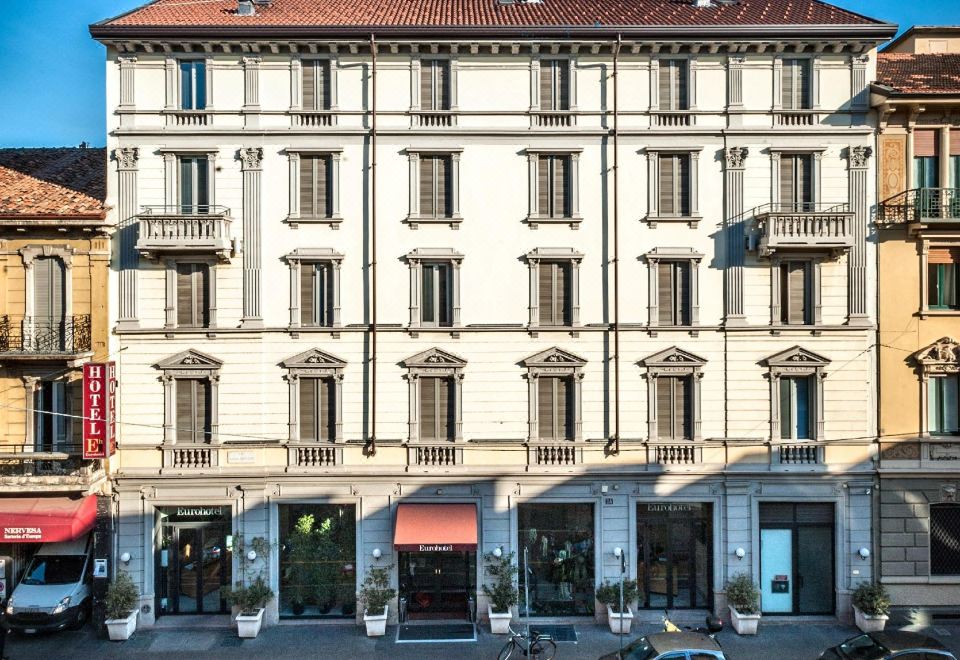
Last booked 1 hr ago
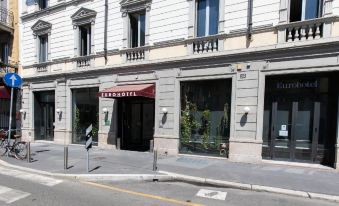

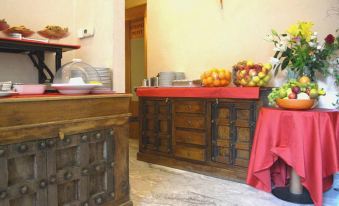
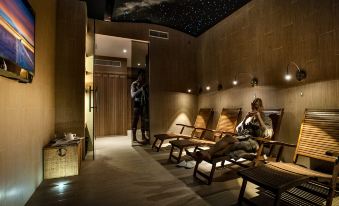


 Highlights
Highlights Excellent service
Excellent service Pets welcome
Pets welcome Lots to do
Lots to do Ideal location
Ideal locationAmenities
Sauna
Spa
Gym
Public parking
24-hour front desk
Luggage storage
Bar
Cafe
All amenities
Property Description
Eurohotel provides flawless service and all the necessary facilities for visitors.Remain linked during your visit by utilizing the complimentary internet access available.Prior to your check-in date, you can arrange airport transportation services, guaranteeing a seamless and efficient experience for both arrival and departure.Services offered by taxi and shuttle at the hotel ensure effortless exploration of Milan.Parking is accessible, supplied by the hotel for guests who arrive by car.Effortlessly plan your daily activities and travel requirements with concierge service, express check-in or check-out, luggage storage and safety deposit boxes provided by the front desk services.Securing top-notch tickets and reserving prime dining spots become effortless through assistance from the hotel's tours.During leisurely days and evenings, in-room amenities such as room service and daily housekeeping enable you to maximize your stay in the room. The hotel is completely smoke-free.In limited designated zones, smoking is exclusively permitted.Crafted for coziness, every guestroom provides an array of features, guaranteeing a tranquil night's sleep while maintaining the level of comfort. For a more enjoyable stay, select rooms at hotel are equipped with linen service, blackout curtains and air conditioning. At Eurohotel, a selection of rooms can be found that showcase unique design elements such as a balcony or terrace.For certain chosen rooms, guests can enjoy in-room amusement like television and cable TV as a part of their stay.Rest assured that your hydration needs will be met, as some guestrooms are equipped with a refrigerator and mini bar.It is worth noting that certain guest bathrooms feature a hair dryer, toiletries and towels for your convenience. Each morning at Eurohotel, a scrumptious, homemade breakfast kick-starts the day. Begin your holiday mornings right with your essential cup of coffee, offered daily at the cafe on-site. Experience a fantastic evening effortlessly! Relish an entertaining night without venturing beyond the confines of the bar.Eurohotel provides a superb assortment of leisure amenities for guests to enjoy. Treat and spoil yourself by stopping at steam room and sauna for a memorable experience. Eliminate those holiday calories by stopping by hotel and making use of their well-equipped exercise amenities.
Show more
8.4/10
Very GoodVery spacious rooms and good staff. 5 minutes drive or 15 minutes walk from Milan Central
All 117 reviews
Surroundings
Metro: Porta Venezia
(700 ft)
Metro: Palestro
(2150 ft)
Airport: Milan Linate Airport
(4.1 miles)
Train: Milan Porta Venezia Station
(700 ft)
Train: Stazione di Milano Porta Vittoria
(1.7 miles)
View on map
Overview
Rooms
Guest Reviews
Services & Amenities
Policies

4
Premium Quadruple Room
4 Single bed or 1 King bed and 2 Single bed
Non-smoking
Air conditioning
Private bathroom
Refrigerator
Private toilet
Check Availability

5
Premium Single Room
1 Single bed
Non-smoking
Air conditioning
Private bathroom
Refrigerator
Private toilet
Check Availability

4
Quadruple Room-Separate Building
1 Queen bed and 2 Single bed or 4 Single bed
Non-smoking
TV
Daily housekeeping
Hot water (24 hours)
Hair dryer
Check Availability

4
Classic Room
1 Queen bed or 2 Single bed
Has window
Non-smoking
Air conditioning
Private bathroom
Refrigerator
Private toilet
Check Availability

5
Premium Triple Room
1 King bed and 1 Single bed or 3 Single bed
Non-smoking
Air conditioning
Private bathroom
Refrigerator
Private toilet
Check Availability

4
Annex Double Room
1 Queen bed or 2 Single bed
15m² | Floor: 1
Has window
Non-smoking
Air conditioning
Refrigerator
Wardrobe
Daily housekeeping
Check Availability

4
Single Room-Annex
1 Single bed
Non-smoking
Air conditioning
Private bathroom
Refrigerator
Private toilet
Check Availability

4
Annex Triple Room
1 Double bed and 1 Single bed
Has window
Non-smoking
Daily housekeeping
LCD TV
Hot water (24 hours)
Hair dryer
Check Availability

5
Classic Single Room
1 Single bed
Has window
Non-smoking
Air conditioning
Private bathroom
Refrigerator
Private toilet
Check Availability

7
Premium Room
1 Queen bed or 2 Single bed
Has window
Non-smoking
Air conditioning
Private bathroom
Refrigerator
Private toilet
Check Availability

5
Family Room With Spa Bath
1 Queen bed and 3 Single bed or 5 Single bed
Has window
Non-smoking
Air conditioning
Private bathroom
Refrigerator
Private toilet
Check Availability

5
Superior Room
1 Queen bed or 2 Single bed
Has window
Non-smoking
Air conditioning
Private bathroom
Refrigerator
Private toilet
Check Availability

4
Superior Triple Room
1 Double bed and 1 Single bed
Has window
Non-smoking
Daily housekeeping
LCD TV
Hot water (24 hours)
Hair dryer
Check Availability

4
Classic Triple Room
1 Double bed and 1 Single bed
Has window
Non-smoking
Daily housekeeping
LCD TV
Hot water (24 hours)
Hair dryer
Check Availability

5
Superior Single Room
1 Single bed
Has window
Non-smoking
Air conditioning
Private bathroom
Refrigerator
Private toilet
Check Availability

4
Classic Quadruple Room
1 Double bed and 2 Single bed
14m² | Floor: 1-2
Has window
Non-smoking
Air conditioning
Private bathroom
Refrigerator
Private toilet
Check Availability
Hide Room Types
Guest Reviews
8.4/10
Very Good
117 reviews
 Verified Reviews
Verified Reviews- Cleanliness8.5
- Amenities7.8
- Location8.8
- Service8.5
Average for similar properties in Milan

Guest User
June 18, 2025
I stayed one night in a single room, which was larger then expected, as was the bed which was a 3/4 bed not a single. Slim line fridge and happy to see the in-room safe was large enough to take a laptop. Perhaps the only thing missing was some way to make tea or coffee. Everything was very clean. The only strange thing is the reception desk which is entirely glassed in with small slit at desk level making it necessary to bend down to hear what the receptionist was saying........not exactly a "friendly" first impression upon arrival. The area around the hotel is beautiful with a lot of cafe's and restaurants. Also a very good, large supermarket just around the corner. Overall, a nice stay and will definitely stay again.

Yuen Nga
June 3, 2025
Nice hotel service and nice location. Near the train and the bus station.
They call it the Eternal City. A phrase that feels almost trite until you stand alone, utterly dwarfed, beneath the Pantheon’s impossible dome, or trace your fingers over travertine worn smooth by two thousand years of passing hands. Rome isn’t just eternal; it’s immediate, visceral, a theatre of existence where the past isn’t preserved behind glass, but bleeds passionately into the vibrant, chaotic present. And experiencing it solo? That’s not loneliness; it’s liberation. It’s a conversation, intimate and profound, between your soul and the city’s timeless spirit.
My dialogue began at dawn, chasing the first honeyed light spilling across the Piazza Navona. Alone, you move differently. Unburdened by consensus or compromise, I followed whims: detouring down a cobbled *vicolo* heavy with the scent of baking cornetti, drawn by the sudden, breathtaking reveal of the Trevi Fountain, still relatively quiet. Tossing my coin wasn’t just a tourist ritual; it was a whispered promise to the city, a silent pact sealed in the cool morning air and the fountain’s roaring majesty. Solitude amplifies these moments – the crisp *click* of your heels on ancient stone, the unfiltered awe as Bernini’s marble figures seem to surge from the water, frozen in divine drama. You hear the city’s own heartbeat, the murmur of awakening life, the distant clang of a baker’s shutter, the splash echoing in the vast basin.
Wandering towards the Roman Forum, the sheer weight of history becomes palpable, almost a physical pressure. Alone, you can truly stop. You can perch on a sun-warmed block of tufa, gaze at the skeletal arches of the Basilica of Maxentius reaching defiantly towards a piercing blue sky, and let your imagination run riot. No commentary needed, no shared speculation required. Here, amid the ghosts of senators and centurions, the silence isn’t empty; it’s resonant. You feel the centuries compress. A stray cat sunning itself on Julius Caesar’s altar becomes a perfect, poignant metaphor for time’s relentless, indifferent march. The Colosseum looms nearby, its brutal grandeur undeniable. Observing it solo, you feel its dual nature more acutely – the awe-inspiring engineering marvel and the chilling echo of spectated suffering. It prompts introspection, a quiet contemplation on humanity’s enduring contradictions, impossible amidst a crowd’s chatter.
Then, the Pantheon. Stepping inside is like walking into the mind of God, conceived by mortals. The sheer scale, the perfection of the dome – that oculus open to the heavens – is humbling beyond words. A shaft of sunlight pierces the dusty interior, illuminating motes dancing like celestial dust. Sitting alone on a bench, head tilted back, the immensity washes over you. The whispers of fellow visitors fade into a reverent hush. You feel infinitesimally small yet profoundly connected to the generations who stood precisely here, awestruck, for millennia. Solitude allows this space for pure, unadulterated wonder. It’s not just seeing; it’s *feeling* the architectural genius, the spiritual ambition made stone.
But Rome isn’t just monumental stones; it’s vibrant, messy, delicious life. Crossing the Tiber into Trastevere, the atmosphere shifts. Narrow streets twist like tangled yarn, laundry flutters like colourful flags between ochre buildings, and the air thickens with the garlicky perfume of *cacio e pepe* and frying *carciofi*. Solo travel makes you porous. You notice the old men arguing passionately over espresso at a tiny bar, the clatter of plates from a hidden trattoria kitchen, the effortless elegance of a Roman woman navigating the cobbles in impossible heels. You slip into a *salumeria*, point at mysterious cheeses and glistening olives, and assemble a picnic feast. Finding a quiet step on Piazza Santa Maria in Trastevere, watching life swirl around the ancient basilica as you savour pecorino sharp enough to make your eyes wa

Katie Sarah
June 21, 2025
The hotel is very close to the city centre. Was clean and very spacious room. It was a pain as we had to return our key everytime we went out so had to ask for it when we came back which was annoying

Weng
March 31, 2025
Average location, average hotel, average price, no complain

Tony_Trips
January 21, 2025
Very good location, close to main station. I booked a single room type for my stay. It was clean and cozy.

Guest User
June 21, 2025
Great accommodation just for one night. Wouldn’t recommend the breakfast though, very limited especially if you’re celiac.

Giacomo
July 9, 2025
The hotel is well located with friendly staff. Room is ok for few nights. The AC was not cold

Guest User
May 23, 2025
I had to pay 30 euro per night because the classic single room was so outdated, only to find out upon departure that they downgraded me since I originally booked their Classic renovated room. But Trip.com was so efficient and compensated for this mistake.

Anonymous User
May 23, 2025
Great location. Very close to the tram station, with many restaurants nearby. The room is clean, the facilities are sufficient, and the price is reasonable.
Services & Amenities
Most Popular Amenities
Sauna
Additional charge
Spa
Additional charge
Gym
Public parking
Additional charge
24-hour front desk
Luggage storage
Bar
Cafe
Taxi booking service
Business center
Stroller
Wi-Fi in public areas
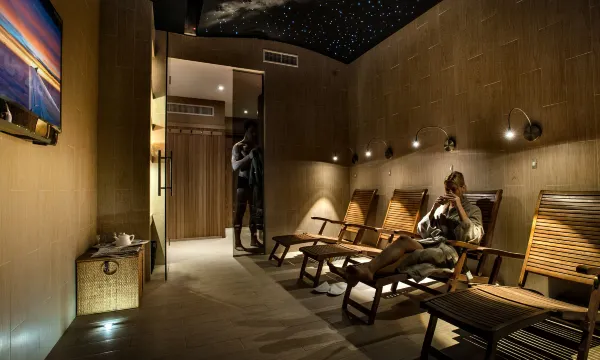
Spa

Gym
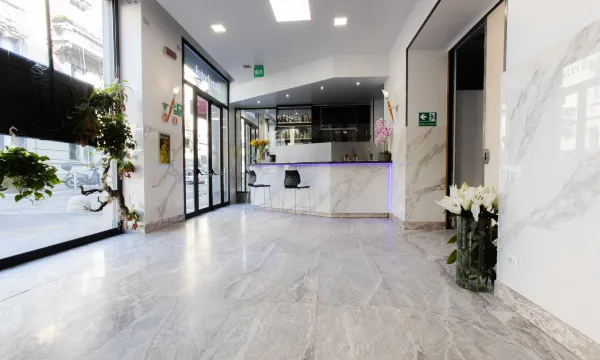
Bar
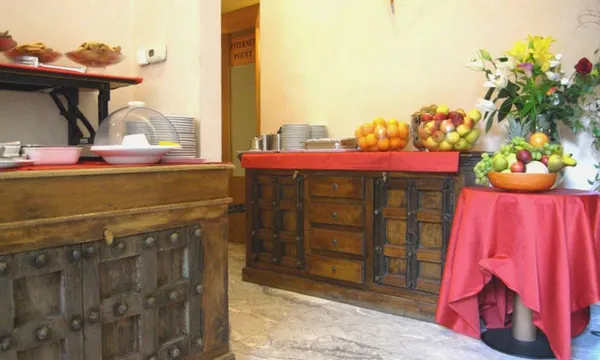
Cafe
Restaurant
Restaurant
More Amenities
Internet
Wi-Fi in public areas
Parking
Public (not only for guests) is available Off-site parking, and Charge, €25.00 (approx. $29.23) Daily. Reservation not needed.
Public parking
Additional charge
Transportation
Shuttle service
Taxi booking service
Front Desk Services
24-hour front desk
Concierge service
VIP check-in service
Safe at front desk
Luggage storage
Languages Spoken
Filipino
Italian
French
Spanish
German
Food & Drink
Cafe
Bar
Lobby bar
Room service
Health & Wellness
Spa
Additional charge
Gym
Sauna
Additional charge
Activities
Eco tours
Public Areas
No smoking in public areas
Garden
Elevator
Cleaning Services
Ironing service
Laundry service (on-site)
Facilities for Children
Stroller
Business Services
Fax/copying service
Additional charge
Business center
Accessibility
Stair-free main entrance
Accessible rooms available
Safety & Security
Intruder alarm
Smoke detector
CCTV in public areas
First aid room
First aid kit
Fire extinguisher
Security personnel
Property Policies
Check-in and Check-out Times
Check-in: After 14:30
Check-out: Before 11:00
Front desk hours: 24/7
Child Policies
Children can stay in some rooms of this hotel.
Additional fees may be charged for children using existing beds. Add the number of children to get a more accurate price.
Cribs and Extra Beds
Extra bed and crib policies may vary according to room type. Please refer to the room type details for more information.
Pets
Pets are allowedAdditional charge
Types of pets allowed: dogs
Fee: Contact the property for details
Age Requirements
The main guest checking in must be at least 18 years old
Paying at the Hotel







- Cash
Property Description
- Opened: 2007
- Renovated: 2018
- Number of Rooms: 69
Eurohotel provides flawless service and all the necessary facilities for visitors.Remain linked during your visit by utilizing the complimentary internet access available.Prior to your check-in date, you can arrange airport transportation services, guaranteeing a seamless and efficient experience for both arrival and departure.Services offered by taxi and shuttle at the hotel ensure effortless exploration of Milan.Parking is accessible, supplied by the hotel for guests who arrive by car.Effortlessly plan your daily activities and travel requirements with concierge service, express check-in or check-out, luggage storage and safety deposit boxes provided by the front desk services.Securing top-notch tickets and reserving prime dining spots become effortless through assistance from the hotel's tours.During leisurely days and evenings, in-room amenities such as room service and daily housekeeping enable you to maximize your stay in the room. The hotel is completely smoke-free.In limited designated zones, smoking is exclusively permitted.Crafted for coziness, every guestroom provides an array of features, guaranteeing a tranquil night's sleep while maintaining the level of comfort. For a more enjoyable stay, select rooms at hotel are equipped with linen service, blackout curtains and air conditioning. At Eurohotel, a selection of rooms can be found that showcase unique design elements such as a balcony or terrace.For certain chosen rooms, guests can enjoy in-room amusement like television and cable TV as a part of their stay.Rest assured that your hydration needs will be met, as some guestrooms are equipped with a refrigerator and mini bar.It is worth noting that certain guest bathrooms feature a hair dryer, toiletries and towels for your convenience. Each morning at Eurohotel, a scrumptious, homemade breakfast kick-starts the day. Begin your holiday mornings right with your essential cup of coffee, offered daily at the cafe on-site. Experience a fantastic evening effortlessly! Relish an entertaining night without venturing beyond the confines of the bar.Eurohotel provides a superb assortment of leisure amenities for guests to enjoy. Treat and spoil yourself by stopping at steam room and sauna for a memorable experience. Eliminate those holiday calories by stopping by hotel and making use of their well-equipped exercise amenities.